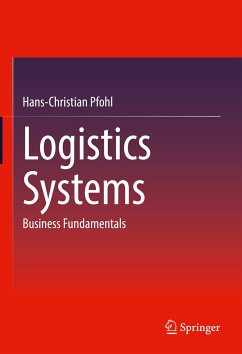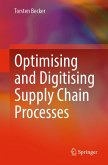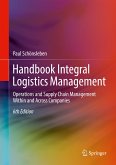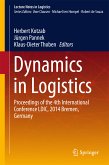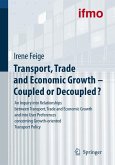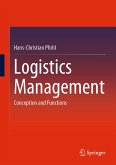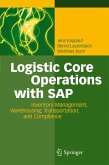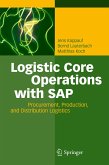This book is a translation of the original German 9th edition Logistiksysteme by Hans-Christian Pfohl, published by Springer-Verlag GmbH Germany, part of Springer Nature in 2018. The translation was done with the help of artificial intelligence (machine translation by the service DeepL.com). A subsequent human revision was done primarily in terms of content, so that the book will read stylistically differently from a conventional translation. Springer Nature works continuously to further the development of tools for the production of books and on the related technologies to support the authors.
The business aspects of logistics systems are presented here. To thisend, logistics subsystems, such as order processing, warehousing or procurement and production logistics, are explained in the system context. The changed demands on the services offered by logistics companies, which lead to a new division of labor between supplier, customer and service provider, are also dealt with, as are the overall economic conditions. A further chapter deals with aspects of international logistics systems, which are gaining in importance due to increasing global economic interconnection.
The book, which is equally profitable for students and practitioners, has been revised and updated in the ninth edition. This concerns in particular the statistical evaluations, especially on macroeconomic aspects of logistics, but also developments in information and communication technology (digitalization) relevant for logistics, e.g. RFID or cloud and blockchain technology or current trends in logistics.
The Content
- The underlyingcross-divisional and cross-company mindset of the logistics concept shapes the book.
- The overall logistics system and its subsystems are characterized comprehensively.
- The macroeconomic and international influences are discussed.
- The latest statistical evaluations and technological developments are used.
The Author
Prof. Dr. Dr. h.c. mult. Hans-Christian Pfohl conducts research at the Technical University of Darmstadt, particularly in the field of logistics/supply chain management. He also holds a professorship at the Chinese-German University College (CDHK) of Tongji University Shanghai, China. As a visiting professor, he teaches at the Wroclaw University of Economics, Poland.
Dieser Download kann aus rechtlichen Gründen nur mit Rechnungsadresse in A, B, BG, CY, CZ, D, DK, EW, E, FIN, F, GR, HR, H, IRL, I, LT, L, LR, M, NL, PL, P, R, S, SLO, SK ausgeliefert werden.

